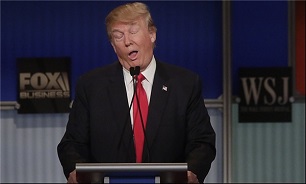Research Says Trump Is Bad for US Mental Health
 But a newly-released 2018 edition of the same survey reveals that the percentage of Americans who view the country's future as a source of stress has increased, up to 69 percent, while the number of people who regard the current political climate as a source of stress has increased to 62 percent, Sputnik reported.
But a newly-released 2018 edition of the same survey reveals that the percentage of Americans who view the country's future as a source of stress has increased, up to 69 percent, while the number of people who regard the current political climate as a source of stress has increased to 62 percent, Sputnik reported.
"Gun violence, family separations and high-profile sexual assaults have dominated the news over the past year. With teens and young adults becoming more vocal about these controversies, APA used this year's survey as an opportunity to evaluate the level of stress among members of Generation Z [those between the ages of 15 and 21,]" the survey report stated.
"Our 2018 survey results show that high-profile issues, such as sexual harassment and gun violence, are significant stressors for Gen Z. America's youngest adults are most likely of all generations to report poor mental health, and Gen Z is also significantly more likely to seek professional help for mental health issues," the report added.
According to clinical psychologist Jennifer Panning, stress concerning America's future can be dubbed as "Trump Anxiety Disorder", in which symptoms "were specific to the election of Trump and the resultant unpredictable sociopolitical climate", the Pacific Standard reported.
A 2018 study published in the Journal of GLBT Family Studies claims that there are "higher levels of stress pertaining to sexual orientation rumination, daily experiences of harassment/discrimination, [and] more symptoms of depression and anxiety" as a result of Donald Trump's unexpected 2016 presidential win.
A study published in 2018 in the journal Psychoneuroendocrinology also reveals that there was an increase in cortisol levels in young adults prior to the 2016 election, and in some cases, afterwards as well.
"Young adults who had negative perceptions of Trump's ability to fulfill the role of president and/or were part of a non-dominant social group (i.e., women, ethnic/racial minority young adults) reported increased signs of stress before the election and on election night. After the election, we observed a general "recovery" in self-reported mood; however, diurnal cortisol indicators suggested that there was an increase in biological stress among some group," the study's abstract said, suggesting that people respond differently to political stress.
Message end/
